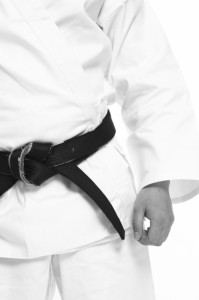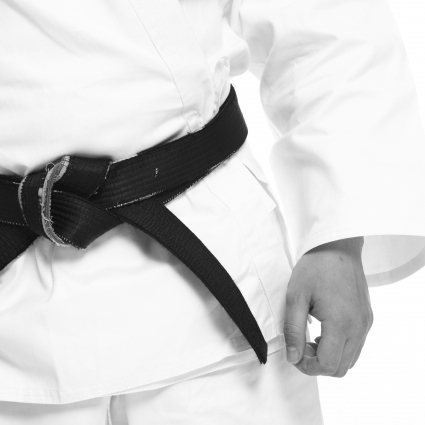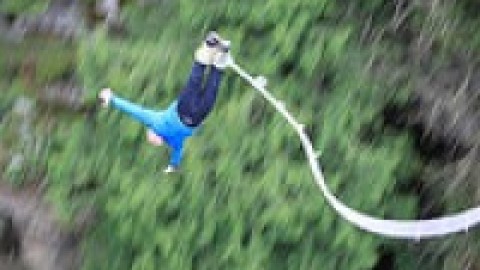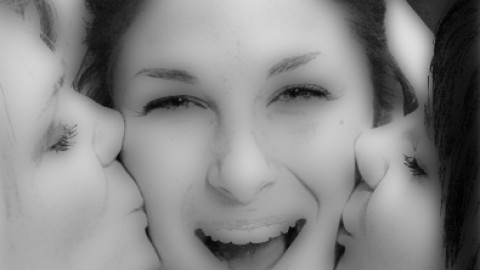 As most of you know, I have been a student of martial arts for a good portion of my life; and I continue to play an active role as a student, an instructor, and as an advocate for the principles of traditional martial arts (for more info click here Integrity Arts ).
As most of you know, I have been a student of martial arts for a good portion of my life; and I continue to play an active role as a student, an instructor, and as an advocate for the principles of traditional martial arts (for more info click here Integrity Arts ).
When I meet people for the first time and they become aware that I am a martial artist, they first ask, “What rank or belt level have you achieved”, and then they ask, “How long have you been practicing”. Once I share this information, most people (even if not familiar with the study of martial arts), almost always say that they recognize and appreciate the discipline required to be a martial artist. Although the requirement to be disciplined is true, it is only the tip of the iceberg of what it takes to be a successful martial artist, especially if you are one who desires to reach a senior rank or belt level.
The study of martial arts is also a study of the self, of others, and of the aspects of life. The lessons learned while studying martial arts also include lessons that parallel the lessons of a quality life.
Good examples of some of these parallelisms are captured in the article, “Martial Morality” written by Dr. Yang, Jwing-Ming. These lessons are great lessons for all people, not just students of the martial arts, but also all students of life. The following are excerpts from the article:
Martial morality includes two aspects: the morality of deed and the morality of mind.
Morality of deed includes:
– Humility
– Respect
– Righteousness
– Trust, and
– Loyalty
Morality of mind consists of:
– Will
– Endurance
– Perseverance
– Patience, and
– Courage
Of the two aspects of morality, the morality of deed is more important, because it concerns the martial art student’s relationship with their instructor and classmates, other martial artists, and the general public. Students who are not moral in their actions are not worthy of being taught, since they cannot be trusted or even respected. Furthermore, without morality of deed, they may abuse the art and use their fighting ability to harm innocent people. Therefore, instructors will normally watch their students carefully for a long time until they are sure that the students have matched their standards of morality of deed before letting them start serious training.
Morality of mind is for the self-cultivation, which is required to reach the final goal. The Chinese consider that we have two minds, an “Emotional mind” and a “Wisdom mind”. Usually, when a person fails in something it is because the emotional mind has dominated their thinking. The five elements in the morality of mind are the keys to training, and they lead the student to the stage where the wisdom mind can dominate. This self-cultivation and discipline should be the goal of any martial arts training philosophy.
MORALITY OF DEED
Humility comes from controlling your feelings of pride. In China it is said: “Satisfaction (pride) loses, humility earns benefits.” When you are satisfied with yourself, you will not think deeply, and you will not be willing to learn. However, if you remain humble, you will always be looking for ways to better yourself, and you will keep on learning. Remember, there is no limit to knowledge. It does not matter how deep you have reached, there is always a deeper level.
Respect is the foundation of your relationship with your parents, instructors, your fellow students, other martial artists, and all other people in society. Respect makes a harmonious relationship possible. However, the most important type of respect is self-respect. If you can’t respect yourself, how can you respect others or expect them to respect you? Respect must be earned, you cannot request or demand it. Only when you have demonstrated that you are deserving of respect will respect come to you automatically and naturally.
Righteousness is a way of life. Righteousness means that if there is something you should do, you don’t hesitate to take care of it, and if there is something that you should not do, you don’t get involved with it. Your wisdom mind should be the leader, not your emotional mind. If you can do this, then you will feel clear spiritually, and avoid being plagued by feelings of guilt. If you can demonstrate this kind of personality you will be able to avoid evil influences, and you will earn the trust of others.
Trust includes being trustworthy, and also trusting yourself. You must develop a personality, which other people can trust. For example, you should not make promises lightly, but if you have made a promise, you should fulfill it. Trust is the key to friendship, and the best way of earning respect. The trust of a friend is hard to gain, but easy to lose. Self-trust is the root of confidence. You must learn to build up your confidence and demonstrate it externally. Only then can you earn the trust and respect of others.
Loyalty is the root of trust. You should be loyal to your instructor and to your friends, and they should also be loyal to you. Loyalty lets mutual trust grow. In the Chinese martial arts, it is especially crucial that there be loyalty between you and your instructor. This loyalty is built upon a foundation of obedience to your instructor. Obedience is the prerequisite for learning. If you sincerely desire to learn, you should rid yourself of false dignity.
MORALITY OF MIND
Will
It usually takes a while to demonstrate a strong will. This is because of the struggle between the emotional mind and the wisdom mind. If your wisdom mind governs your entire being you will be able to suppress the disturbances that come from the emotional mind, and your will can last. A strong will depends upon the sincerity with which you commit yourself to your goal. This has to come from deep within you, and can’t be just a casual, vague desire. Oftentimes, the students who show the greatest eagerness to learn in the beginning quit the soonest, while those who hide their eagerness deep inside their hearts stay the longest.
Endurance, Perseverance, and Patience
Endurance, perseverance, and patience are the manifestations of a strong will. People who are successful are not always the smartest ones, but they are always the ones who are patient and who persevere. People who are really wise do not use wisdom only to guide their thinking, they also use it to govern their personalities. Through cultivating these three elements you will gradually build up a profound mind, which is the key to the deepest essence of learning. If you know how to use your mind to ponder as you train, it can lead you to a deeper stage of understanding. If you can manifest this understanding in your actions you will be able to surpass others.
Courage
Courage is often confused with bravery. Courage originates with the understanding that comes from the wisdom mind. Bravery is the external manifestation of courage, and can be considered to be the child of the wisdom and the emotional minds. For example, if you have the courage to accept a challenge, that means your mind has understood the situation and made a decision. Next, you must be brave enough to face the challenge. Without courage, the bravery cannot last long. Without the profound comprehension of courage, bravery can be blind and stupid.
Daring to face a challenge that you think needs to be faced is courage. But successfully manifesting courage requires more than just a decision from your wisdom mind. You also need a certain amount of psychological preparation so that you can be emotionally balanced; this will give your bravery a firm root so that it can endure. Frequently you do not have enough time to think and make a decision. A wise person always prepares, considering the possible situations that might arise, so that when something happens he or she will be ready and can demonstrate bravery.
(The full-unabridged article can be read here: Martial Morality)
Your Morality/Your Values are Critical
These aspects of morality and your underlying values are not only applicable to the martial arts practitioner, but also to any individual who is interested in taking a leadership role in becoming a better human being. I invite you to discover your unique core values by contacting us for a consultation.
Take action, and act now… ‘Contact’
We want to hear from you…what are your thoughts?
Photo Credits
Black Belt by Luigi Diamanti






Great article and parallels with real, everyday life. Congrats!
Thanks Ken!
The article made me think of the dance we often do in our dealing with others. I agree that our emotional mind and wisdom mind are always equally available to us. Whether we simply react or observe our reaction to a specific situation or person, our manner of response will follow the “mind” which creates the response.
No matter how difficult, the lesson is for both participants (instructor and student), humility is not our favourite reaction in the West. Yet, its teachings lead to opportunities of moving through life in the flow of the river, with little resistance.
I will continue to be conscious of the moments when I begin to battle upstream as I respond with my emotional mind. May they become less frequent and shorter in duration. This is my practice.
Thank you for your comments Catherine…us humans generally tend to be judgemental and quick to react to our environment and the people within it, often mistakenly. Your practice of being consciously aware is good advice for all.
Fantastic article Greg. This is such good stuff, Thank You for sharing.
Thanks Johnny!
Thanks Greg. Words of wisdom, which you no doubt, gained by your experiences in life, which there is really no subsitute for. Ironically though, hardship is faced most easily with traits like courage, integrity, humility and patience, but hardship also is the means by which we develope and cultivate those qualities. If we can trust this fact of life, then whatever comes our way can be seen as an opportunity and a blessing….What else can we do if we want to be happy?
Rebekah, your words are so true; thank you.
One fact of living is that life will always be challenging and we will always face change. And as you’ve said it helps when we can approach life with our own set of values (courage, integrity, humility, and patience, for example). These values can form the foundation for our way of being and the decisions we make. And there in lies the key word, “decide”, because ultimately, we “decide” our actions, our attitude, and our level of happiness.
Hi Greg,
Fascinating article. I read it several times as I enjoyed the snippets of wisdom very much. What the article says to me is ” this is, and should be, the struggle we have each day with ourselves and the life that is presented to us”. I use the word “struggle” for lack of a better word, but basically I get – be the best you can without harming others. Very simplistic approach, but very difficult when life gets involved with philosophy or dogma. The points you have mentioned in Morality of Deed and Mind remind us of the truly important aspects of life to focus on. As Rebekah mentioned above – it is a decision. I very much appreciate there are people like you to remind us of the importance of focusing on these aspects.
How very true, thanks Donna.
It is through the sharing of the collective wisdom of our community of friends and colleagues that helps to remind us of the importance and the responsibility we have to ourselves and others to always decide to live these high aspects of morality, even in the face of adversity and challenge; always striving to be good examples to others.
That was a great article. It has given me some concrete thoughts about what karate means to me and what it has done for me.
Thank you.
Thanks Colleen!